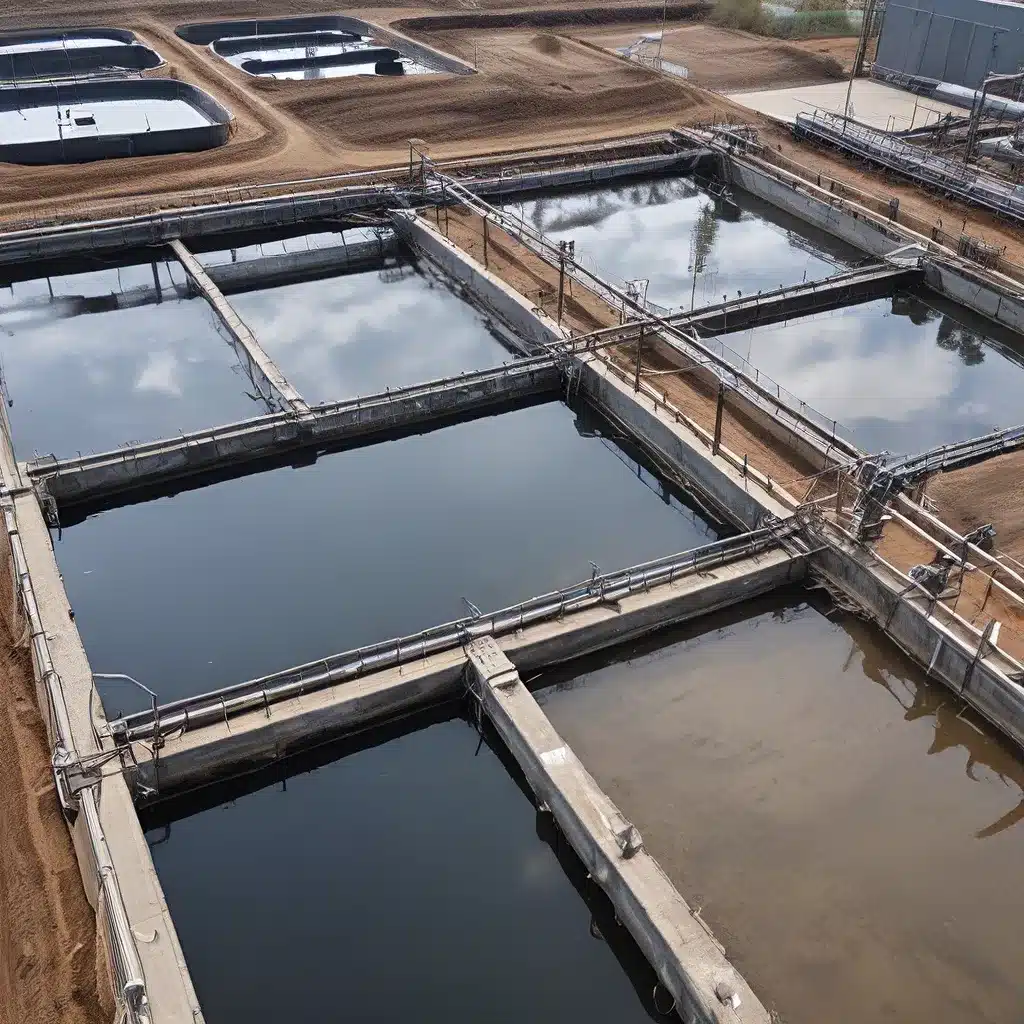
Grab a cup of coffee, folks – we’re about to dive into the captivating world of wastewater treatment innovations that are reshaping the future of water management. Forget about the typical dry, technical talk; this is where science meets storytelling, and the future looks downright thrilling.
Wastewater Woes and the Call for Change
Let’s be honest, wastewater treatment hasn’t always been the sexiest topic in the world. It’s the unsung hero of our infrastructure, quietly doing the dirty work (pun intended) to keep our water clean and our communities healthy. But as our cities grow, our climate shifts, and our demands for clean water skyrocket, the old-school methods just aren’t cutting it anymore.
That’s where the pioneers of wastewater innovation come in. They’re a passionate bunch, determined to transform this overlooked sector into a shining example of sustainability and technological prowess. And let me tell you, the changes they’re unleashing are nothing short of revolutionary.
Harnessing the Power of Stormwater
One of the most exciting developments in wastewater management is the rise of stormwater harvesting. I know, it sounds like something straight out of a sci-fi movie, but trust me, it’s real, and it’s transforming the way we think about urban water systems.
Imagine a world where the rain that cascades down our city streets doesn’t just flood our roads and overflow our sewers, but actually becomes a valuable resource. That’s the vision behind stormwater harvesting – capturing, treating, and reusing this abundant, yet often overlooked, water source.
Melbourne, Australia has been leading the charge in this arena, establishing a dedicated stormwater harvesting fund to help bring innovative projects to life. By investing in cutting-edge technologies like hydrodynamic separators and UV light treatment, they’re able to transform stormwater into a resource fit for everything from irrigating parks to flushing toilets.
“The beauty of stormwater harvesting,” explains urban water expert Emma Greiner, “is that it addresses so many challenges at once. We’re reducing the strain on our drinking water supply, mitigating urban flooding, and cleaning up our waterways – all while creating vibrant, livable cities.”
Recharging Groundwater Aquifers
But the innovations in wastewater management don’t stop there. Another game-changing approach is the integration of stormwater management with groundwater recharge. By capturing and diverting stormwater to replenish our underground aquifers, we’re not only ensuring a reliable, renewable source of freshwater, but also helping to combat the growing challenge of groundwater depletion.
“It’s a true symbiotic relationship,” says hydrogeologist Dr. Avery Nguyen. “Stormwater management and groundwater recharge go hand-in-hand, creating a closed-loop system that secures our urban water supply for the long haul.”
And the proof is in the pudding – or should I say, the water. Just look at Los Angeles, where innovative projects are incentivizing the capture and reuse of stormwater, directly replenishing the city’s groundwater aquifers. It’s a win-win for both the environment and the community.
The Rise of Recycled Water
But the wastewater revolution doesn’t stop there. As the demand for clean water continues to soar, the race is on to develop advanced recycling technologies that can turn our used water into a valuable resource.
Water recycling is emerging as a keystone for climate resilience and sustainable urban water management. By harnessing the power of innovative processes like membrane filtration, reverse osmosis, and even ultraviolet disinfection, we’re able to transform wastewater into crystal-clear, high-quality water that can be reused for everything from industrial applications to landscape irrigation.
“The beauty of water recycling is that it’s a closed-loop system,” says Sarah Wilkins, an environmental engineer at Inland Waters Inc. “We’re not just disposing of our wastewater – we’re treating it, purifying it, and putting it back to work. It’s a true testament to the power of circular economy principles.”
And the benefits don’t stop there. By reducing our reliance on freshwater sources, water recycling also helps mitigate the impact of droughts, protects sensitive ecosystems, and even plays a role in combating urban heat island effects.
Tackling Pollution with Innovation
But the revolution in wastewater treatment isn’t just about water conservation and reuse – it’s also about tackling the pressing issue of water pollution. And the innovators in this field are pulling out all the stops.
Take water quality trading, for example. This innovative approach allows industries and municipalities to collaborate on reducing pollutant loads, creating a market-based system that incentivizes clean water solutions. By harnessing the power of collaboration and financial incentives, we’re seeing remarkable reductions in everything from nutrient runoff to heavy metal contamination.
“Water quality trading is a game-changer,” says environmental economist Dr. Lena Solis. “It takes the traditional ‘command-and-control’ approach to water pollution and flips it on its head, empowering stakeholders to find the most cost-effective and innovative ways to clean up our waterways.”
And the best part? These water quality trading programs are popping up all over the world, from the United States to China, as cities and industries recognize the immense potential of this collaborative approach to tackling water pollution.
The Future is Bright (and Sustainable)
As I wrap up this exploration of wastewater treatment innovations, I can’t help but feel downright giddy about the future. These technologies and approaches aren’t just changing the way we manage our water resources – they’re transforming our cities, our ecosystems, and our very way of thinking about sustainability.
From stormwater harvesting to groundwater recharge, water recycling to water quality trading, the innovators in this field are proving that the future of water management is bright, bold, and brimming with possibility. And I, for one, can’t wait to see what they come up with next.
So, let’s raise a glass (of recycled water, of course) to the unsung heroes of the wastewater revolution. They’re not just cleaning up our water – they’re paving the way to a more sustainable, resilient, and livable future for us all.


